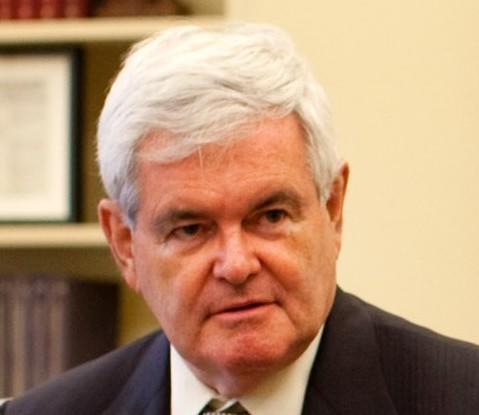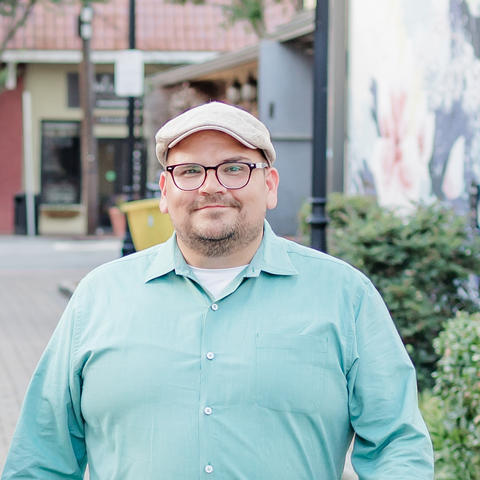
Section Branding
Header Content
Georgia Today: City council prepares to vote on 'Cop City;' Mobile health units; Oyster season ends
Primary Content
Hundreds of people line up to speak as the Atlanta City council prepares to vote on the proposed police training facility; Fulton County launches a new mobile mental health unit; and oyster harvesting season officially ends in Georgia — we'll tell you whether you can expect more oysters in restaurants across the region.

Orlando Montoya: Hello and welcome to the Georgia Today podcast from GPB News. Today is Monday, June 5. I'm Orlando Montoya. On today's episode, hundreds of people line up to speak as the Atlanta City Council prepares to vote on the proposed police training facility. Fulton County launches a new mobile mental health unit, and oyster harvesting season officially ends in Georgia. We'll tell you whether you can expect more oysters in restaurants across the region. These stories and more are coming up on this edition of Georgia Today.
Story 1:
Orlando Montoya: The Atlanta City Council is expected to vote today on a plan to approve $31 million for a police training center. GPB's Peter Biello is at the meeting.
Peter Biello: More than 350 people signed up before the meeting to speak. Some spoke in favor of the project, citing the need for adequate training facilities, and criticizing opponents of the project as privileged environmentalists and out-of-towners. Opponents say the training center is an expensive perpetuation of racist policing. During the meeting, the chamber audience members shouted complaints about the process of signing up for public comment, prompting councilors to amend the agenda to give more people a chance to speak. The vote is expected to take place after public comments conclude. For GPB News, I'm Peter Biello in Atlanta City Hall.
Orlando Montoya: The last time the council met on the issue in May, it generated 7 hours of public comments. City officials closed city hall to regular business today out of concerns for security.
Story 2:
Orlando Montoya: Wellstar Health system officials came under fire today for a nearly $800 million partnership with the Augusta University health system after closing two Atlanta area hospitals last year. Members of the state Senate's Health and Human Services Committee questioned company executives about their decisions to close Atlanta Medical Center and a smaller hospital in East Point while spending money elsewhere. Wellstar officials said the closures were unavoidable.

Story 3:
Orlando Montoya: Fulton County launched its new mobile mental health unit last week. GPB's Amanda Andrews explains it's designed to make mental health resources more accessible.
Amanda Andrews: The Mobile Mental Health Unit is a bus featuring three rooms where the public can show up and meet privately with a licensed therapist for a mental health screening. Fulton County Behavioral Health Director LaTrina Foster says she hopes to make more people comfortable seeking care.
LaTrina Foster: We have an excellent caption, right: "Are you OK?" We know a lot of our community members right now are not OK. So we ask the question, "are you OK?" But then we also let you know, at the same time, help is here. Literally, right here in this mobile unit.
Amanda Andrews: The mobile mental health unit will rotate visits to public locations around Fulton County throughout each month. It was paid for with a nearly $4 million grant from the U.S. Department of Health and Human Services. For GPB News, I'm Amanda Andrews.
Story 4:
Orlando Montoya: About 19,000 older Georgians could lose food assistance benefits under the bipartisan debt ceiling agreement signed into law over the weekend. The deal increases the age limit for those required to work to receive the benefits from 49 to 54 years old. Analysts with the Georgia Budget and Policy Institute, including Danny Canso, reacted to the agreement today.
Danny Canso: That's going to put a much greater burden of need onto our local communities and onto our state. And so now there is a clear role for the state to fill the gap.
Orlando Montoya: He says the state should use part of an expected multi-billion dollar budget surplus to increase funding to food assistance programs.
Story 5:
Orlando Montoya: The operator of a chemical plant is reimbursing a Georgia fire department for damaged equipment and overtime pay accrued battling a raging fire at the facility in April. Glynn County commissioners last week accepted a check for around $37,000 from Pinova, which produces terpene resins used in glues and other adhesives in the port city of Brunswick. Fire broke out at the plant on April 15, sending plumes of thick smoke into the sky and prompting officials to issue a shelter in place order for people living within a mile of the blaze.
Story 6:
Orlando Montoya: Georgia's oyster harvesting season officially ended last week. GPB's Benjamin Payne has more on what that means for consumers.
Benjamin Payne: If you're heading out for seafood anytime soon, don't expect to see fresh and raw Georgia oysters on the menu. That's because the state routinely shuts down harvesting over the summer months as warmer water breeds harmful bacteria. Charlie Phillips owns Sapelo Sea Farms near coastal Georgia's Sapelo Island. He says this past season's catch was as productive, but that pollution across the region has gotten worse since they began plucking oysters in the late '90s.
Charlie Philips: As a culture, we are really bad about out of sight, out of mind, not worrying about what really goes on downstream. Once you put plastic in the waters, even the microplastics, it stays in there a long time and it keeps accumulating.
Benjamin Payne: The Department of Natural Resources says oyster harvesting can't resume until Oct. 1 — 30 minutes before sunrise, to be precise. For GPB News, I'm Benjamin Payne.

Story 7:
Orlando Montoya: In the 1960s and 1970s, the far right anti-communist John Birch Society both challenged the mainstream Republican Party and presaged its future. That's according to my next guest, historian and George Washington University political management professor Matthew Dallek, author of a new book, Birchers: How the John Birch Society Radicalized the American Right. He's here to talk about the deep Georgia connections to the influential society. But first, we need to talk about what it was, Mr. Dallek. Welcome.
Matthew Dallek: Thanks so much for having me.
Orlando Montoya: What's your best short description of the John Birch Society?
Matthew Dallek: Well, it was a group of about 60,000 to 100,000 Americans who wanted to fight what they saw as a communist threat, a communist conspiracy inside their communities. And they did all sorts of activities.
Orlando Montoya: There were several passages in the book where you sort of summed up the Birchers and how they differed from mainstream Republicans in a few short words. And they were: explicit racism, anti-international, anti-establishment, conspiracy theories, violent and apocalyptic. Do you see those themes as sort of the wall between mainstream and extremism in the conservative movement?
Matthew Dallek: Yeah, great question. I do see it. I don't know if I would describe it as a wall. I mean, I think the far right was part of the conservative coalition at times, especially during election campaigns. Conservative politicians, they wanted the Birchers and their successors. They wanted their money, their votes, and they wanted the energy, but they did not want the taint.

Orlando Montoya: Let's get to the Georgia connections, because there are many, starting with John Birch himself. Who was he and how did he get a movement named after him?
Matthew Dallek: Yes. How does one get a movement named after them? That's a — that's a great puzzle. So he was an evangelist turned warrior. He became an intelligence officer for the U.S. Army. And he was killed shortly after World War II by Chinese communist forces. And Robert Welch, the founder of the Birch Society, discovered in the mid-1950s and early 1950s that John Birch not only had been killed, but as he argued in his short biography of Birch, that Birch's death had been covered up by American government officials who were part of this alleged communist conspiracy. And so the real crime was not just the murder of John Birch, but it was the U.S. government's efforts to cover up the crime as part of this communist plot. And so Birch became really the first victim of "World War III", as many Birch leaders saw it and named it after this martyr.
Orlando Montoya: And he was from Georgia, correct?
Matthew Dallek: Macon, Ga.
Orlando Montoya: After Welch, the society's founder, the organization's second national chairman, was Georgia congressman Larry MacDonald, a conservative Democrat who represented a Northwest Georgia district for eight years, ending with his death in 1983. What's his history in the society and how does he take us into the 1980s?
Matthew Dallek: Well, MacDonald's a fascinating character and actually represented part of the same district that Marjorie Taylor Greene represents. MacDonald was a leader of the Birchers. He was an ultra conservative Southern Democrat. He was very pro-gun. He owned many, many guns, which especially at the time was seen as pretty far right. And he opposed Tip O'Neill, the speaker for speaker, and was, you know, pushed out by the Democrats, basically kicked off his committees. And what I think is interesting about him in part in his career as that he really was the fringe of the fringe. He was seen as the most extreme member of Congress in the 1970s and early and mid-1980s. Yet, of course, today, MacDonald's type is quite powerful.
Orlando Montoya: I found an archived news article that said segregationist Georgia Gov. Lester Maddox, 10 years out of office in 1983, wanted a national holiday not for the Rev. Dr. Martin Luther King Jr as was becoming law at the time, but for MacDonald. Was Maddox a Bircher?
Matthew Dallek: Maddox, I do not think was a member of the Birch Society, as far as I can tell. But around 1970, the early 1970s, he starts to speak at a lot of their conventions or their — their "God and country" rallies. He's sort of the marquee speaker. And Maddox would get up on stage and tell the Birch Society that civil rights — which again, by the early 1970s had basically had become a more settled issue — and Maddox would say that civil rights was a communist plot. It was a communist conspiracy to take away Americans' rights. And so, again, I don't think he was a card-carrying member of the society, but he became a de facto leader of the society.

Orlando Montoya: The society fell into decline in the 1980s when other organizations like Moral Majority and the Christian Coalition took up its mantle. Can you take us from there to another former Georgia congressman: former Speaker of the House Newt Gingrich?
Matthew Dallek: Gingrich, in some respects, I think, comes out of the Birch tradition, although not entirely. I think one of Gingrich's insights that the Birchers also proposed was this idea of politics as war. Liberals, the Democrats, were not just ideological opponents, but really were enemies who were from within the greatest threat to the character of the United States and to the, to the ideas that made America great. So he was really able to wield this apocalyptic tear it all down culture war approach. And there are some echoes, but again, you don't want to overdo it because in other respects Gingrich, I do not think, you know, kind of operated in the Birch mold.
Orlando Montoya: Yeah. I do want to ask you if it's fair to lump in some of these more current figures — Donald Trump, Marjorie Taylor Greene, even Newt Gingrich — with the Birch Society when we are so far removed from its heyday?
Matthew Dallek: Well, you know, you never want to simply say "that's person's a Bircher or — you know. But but I do think that, as I argue in the book, it is important to look at how Birch Ideas had an afterlife and became important to their successors. People, of course, can disagree. But what I argue in the book is that the Birchers were an important group that helped to establish this alternative political tradition on the far right, and that some of these current figures that you mentioned, that they picked up on these ideas. And I do think that these ideas have made a comeback. And so whether we're talking about banning sex education in the schools or banning books or the more what I would argue, more explicit forms of racism, the conspiracy theories, you know, Birchers propagated all these things. And I think that these are also central elements of the modern Trump-led MAGA movement. And so, again, you don't want to overdo the parallels, but the ideas I think did have an afterlife. And we've seen a remarkable resurgence of these ideas atop at least much of the Republican Party today.
Orlando Montoya: Matthew Dallek is author of the new book Birchers: How the John Birch Society Radicalized the American Right. Thank you for coming to the program.
Matthew Dallek: Thank you so much for having me.
Orlando Montoya: And that's it for today's edition of Georgia Today. If you'd like to learn more about these stories, visit GPB.org/news. We have all kinds of updates there. And if you haven't yet, hit subscribe to this podcast. We'd love for you to do that so you stay current in your feed with us. And if you have feedback, send that to us as well. We'd love to hear from you at Georgia today at GPB Talk. I'm Orlando Montoya. Glad to be here today and we'll see you tomorrow.
___
GPB's Georgia Today newsletter hits your inbox on Tuesdays, Wednesdays and Thursdays with top stories from around the state featuring news, politics and more. Subscribe here.




